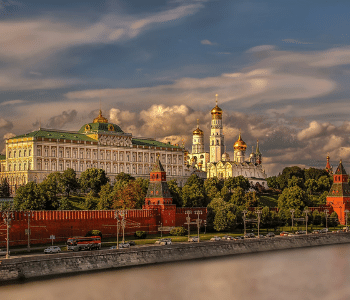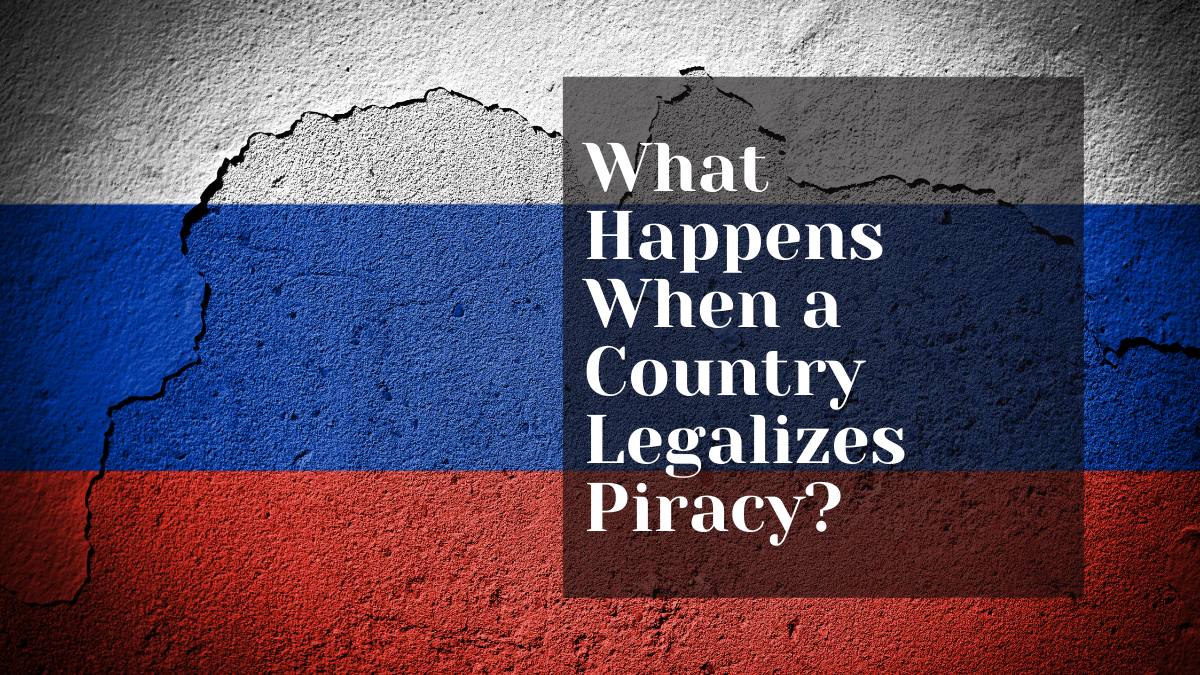The Impact of Russia Legalizing Piracy

Earlier this month, the Russian government began taking steps to broadly legalize the piracy of all content from countries that were sanctioning it. This movie initially began with patents and business software, but has been reportedly expanded to include all types of copyright-protected content.
(Note: There are conflicting reports on whether this has already been signed into law or is just being considered. If anyone has any clarification, I would greatly appreciate the help.)
The move from the Russian government follows its invasion of Ukraine, which brought down significant international sanctions on the country. Those sanctions were furthered by dozens of companies pulling out of the country, further reducing Russia’s access to non-local technology.
However, this raises a very significant question: What will the likely outcome of this be?
That is difficult to say, it is relatively unprecedented for a country to simply decide to ignore intellectual property laws. There truly isn’t a good analog for this.
However, one thing that isn’t likely to change much is Russia itself. That’s because the country has a long history of tolerating piracy. A history that started well before this recent shift.
But that doesn’t mean that there won’t be any impacts at all, especially in the longer run.
A Checkered History
In 2021, the United States Trade Representative released its Special 301, which highlights countries that it claims are not doing enough to protect intellectual property rights. In that report, the USTR placed Russia on its Priority Watch List, noting that the country had high piracy rates and limited practical enforcement.
This was backed up by the Business Software Alliance, which released a survey in 2018 that said some 62% of all software installed in the country was unlicensed. That number is significantly higher of the global average, 37%, and the regional average, 57%, for Central and Eastern Europe.
As grim as that number is, it actually represents some significant progress. According to a Moscow Times article in 1996, the amount then was 91 percent.
Things don’t get much prettier when you look at consumers in the country. According to a 2019 survey, some 91% of Russians preferred pirated content over legal alternatives. That number includes 25% of respondents that said they pirate content on “ideological” grounds.
Looking at these numbers, it is easy to see why there hasn’t been more panic. Even if piracy does tick up in Russia, it doesn’t have much farther that it can go. With so much of the nation openly engaging in piracy in spite of the law, it’s unclear how much things will change should it be fully legalized.
However, this isn’t to imply that there are no worries. That’s because Russia could become a larger haven for piracy outside its borders as well as inside.
A Different Threat
Due to the internet, what happens in one country is rarely isolated to its borders. This is especially true with copyright.
Even if little changes within Russia with regard to how Russians access copyright-protected works, it could change the piracy landscape in other ways.
One area in which Russia has (or had) made significant progress was in targeting and shuttering pirate websites. New laws that took effect in 2015 made it easier for rightsholders to order sites within the country to shut down for repeated copyright violations.
That same year, some 11 sites were shuttered in one legal case. This was coupled with site blocking legislation, which often targets local sites as well as international ones, and by September 2018 had blocked some 6,000 sites.
Though Russia still lags many other countries when it comes to this kind of enforcement, the strides they had been making to target the supply of infringing content was showing at least some success.
As a result, even if there is little change in the amount of pirated content Russia consumes, there could be a significant change in the amount it supplies to the world.
This could be a new challenge for rightsholders, trying to enforce their rights when the site is hosted in a country that doesn’t recognize those rights. It could create a very different kind of piracy climate and necessitate new strategies to even begin countering it.
That is a challenge rightsholders would do well to start preparing for now, before it has the opportunity to become a reality.
Bottom Line
In the end, there is no real precedent for this. Much like our society as a whole, copyright has become increasingly interconnected. Modern copyright, especially in the age of the internet, is dependent on countries both respecting one another’s copyrights and having relatively similar protections to one another.
One country simply deciding to withdraw from that creates unique challenges that the current system is simply not designed to handle.
Even if it doesn’t come to pass in Russia or does so but only for a brief period of time, this likely won’t be the last time we’re faced with this kind of conflict. As such, now is a good time to start discussing how this will be handled practically should something like this happen.
While we can’t predict what the outcomes will be of this move, we can predict that it could happen again. That makes it important to consider these issues sooner rather than later.
Want to Reuse or Republish this Content?
If you want to feature this article in your site, classroom or elsewhere, just let us know! We usually grant permission within 24 hours.
